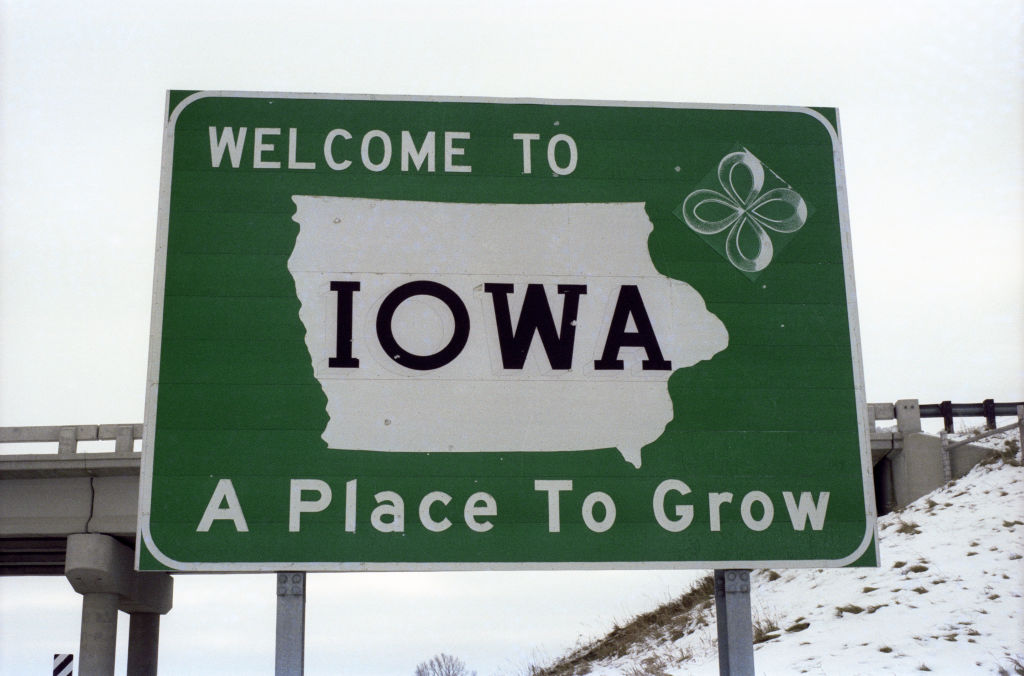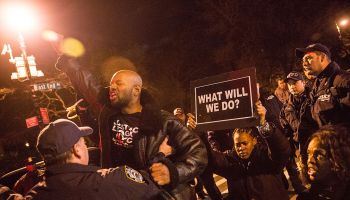The Voting Rights Act of 1965 stands as both a landmark achievement in the fight for equality during the turbulent times of the Civil Rights Movement — and also a chilling reminder of the brutal assault police forces made on African-American marchers who were peacefully demonstrating for their right to vote in Selma, Ala., on March 7 of that same year. As a result of the “Bloody Sunday” event, 36th U.S. President Lyndon B. Johnson and Congress worked feverishly to end the Southern states’ resistance to change voting rights’ legislation; President Johnson demanded for new voting rights laws and a hearing on a bill that would eventually become the Voting Rights Act.
SEE ALSO: Disguise Leads To Freedom For Former Slaves
Although some Northern states allowed freed Black men to register and vote before the Civil War, voting was almost an exclusively White male practice.
Watch footage of Bloody Sunday here:
After the Civil War, Congress enacted the Military Reconstruction Act of 1867, which allowed former Confederate states to join the Union if they adopted state laws. In 1870, the 15th Amendment was made official and allowed voting, overriding earlier laws that prohibited Black voters. Some Blacks were also appointed to elected positions.
The era of disfranchisement followed shortly after racist groups, such as the Ku Klux Klan, resisted the notion that Blacks were allowed to vote and violently intimidated Black voters to suppress turnout. When Whites began regaining power of their state and local governments, divisive disfranchising laws were designed in insidious ways to exclude Blacks from participating.
By 1910, Blacks were universally disenfranchised.
In 1957, after years of organizing and criticism from African-American leadership, Congress would create the Civil Rights Division of the Department of Justice and the Commission on Civil Rights. In 1960, a law allowed federal courts to appoint voting referees to oversee voter registration after claims of discrimination. In 1964, some provisions were made but the literacy tests, poll taxes, and other agenda-laden practices were allowed to remain in place.
President Johnson boldly signed the Act (pictured above) in to law on this day (August 6), effectively abiding the 15 Amendment. The law applied a national prohibition against the denial of voting rights based on the literacy tests and other such barriers. Among its other provisions, the Act contained enforcement provisions aimed at southern states, where discrimination was thought to be highest.
Another section of the law did away with the practice of poll taxes, although some states fought hard to keep the measure in place. A Supreme Court case, though, found poll taxes to be unconstitutional, according to the 14th Amendment.
Once again, the Voting Rights Act has become the centerpiece of political discussion with a Republican-led campaign that challenges certain provisions and looks to mirror Texas’ very stringent Voter ID law.
Republicans claim that the Voter ID law would cut down on voter fraud and ensure a firmer election system. Opponents of the “pre-clearance” mandate initiatives say that because these invasive practices were already struck down years ago, there is no need to attack minorities and poor people who simply wish to be part of the democratic process.
Clearly, the Voting Rights Act has been a boon to elected Black and Hispanic officials since its inception. The resistance from the GOP is seen by many as a bold attack to keep Blacks and minorities disenfranchised while some say this makes for a more accountable voting process.
No matter the machinations behind the Republicans’ desire to challenge portions of the Voting law — which Presidential hopeful Mitt Romney supports — there is ample reason to suggest that the push for Voter ID laws would seriously handicap Black voter turnout in a variety of ways.
Sound off!
























